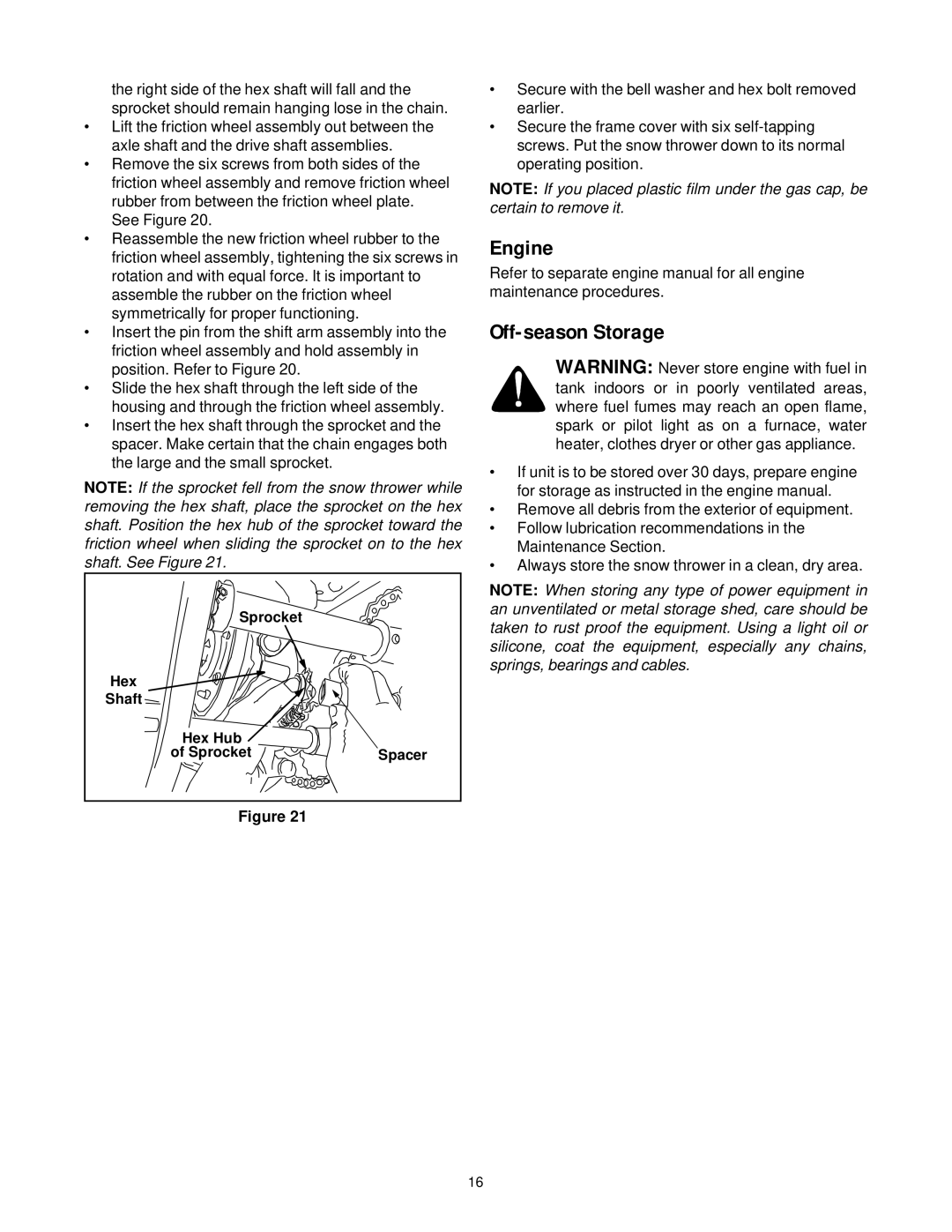
the right side of the hex shaft will fall and the sprocket should remain hanging lose in the chain.
•Lift the friction wheel assembly out between the axle shaft and the drive shaft assemblies.
•Remove the six screws from both sides of the friction wheel assembly and remove friction wheel rubber from between the friction wheel plate.
See Figure 20.
•Reassemble the new friction wheel rubber to the friction wheel assembly, tightening the six screws in rotation and with equal force. It is important to assemble the rubber on the friction wheel symmetrically for proper functioning.
•Insert the pin from the shift arm assembly into the friction wheel assembly and hold assembly in position. Refer to Figure 20.
•Slide the hex shaft through the left side of the housing and through the friction wheel assembly.
•Insert the hex shaft through the sprocket and the spacer. Make certain that the chain engages both the large and the small sprocket.
NOTE: If the sprocket fell from the snow thrower while removing the hex shaft, place the sprocket on the hex shaft. Position the hex hub of the sprocket toward the friction wheel when sliding the sprocket on to the hex shaft. See Figure 21.
Sprocket |
|
Hex |
|
Shaft |
|
Hex Hub |
|
of Sprocket | Spacer |
Figure 21
•Secure with the bell washer and hex bolt removed earlier.
•Secure the frame cover with six
NOTE: If you placed plastic film under the gas cap, be certain to remove it.
Engine
Refer to separate engine manual for all engine maintenance procedures.
Off-season Storage
WARNING: Never store engine with fuel in tank indoors or in poorly ventilated areas, where fuel fumes may reach an open flame, spark or pilot light as on a furnace, water heater, clothes dryer or other gas appliance.
•If unit is to be stored over 30 days, prepare engine for storage as instructed in the engine manual.
•Remove all debris from the exterior of equipment.
•Follow lubrication recommendations in the Maintenance Section.
•Always store the snow thrower in a clean, dry area.
NOTE: When storing any type of power equipment in an unventilated or metal storage shed, care should be taken to rust proof the equipment. Using a light oil or silicone, coat the equipment, especially any chains, springs, bearings and cables.
16
